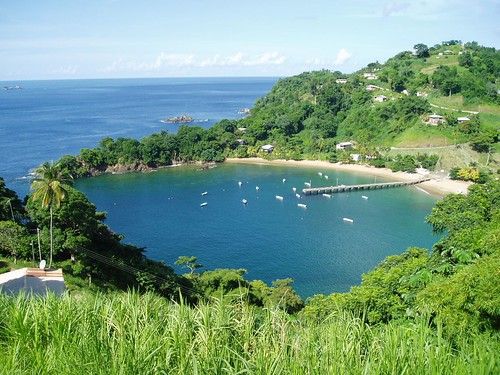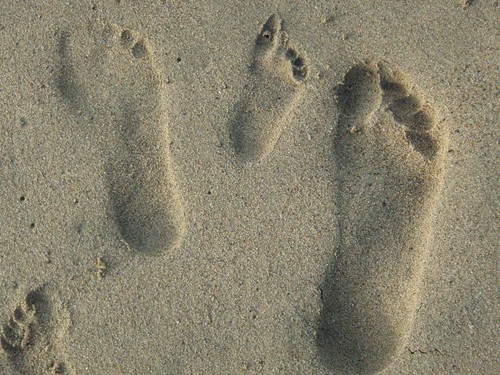Cote ce cote la – A little bit of this, a little bit of that
I grew up in an Anglophone family in Trinidad and Tobago (or T and T, as we call it), an archipelagic republic in the Caribbean Sea, just off the coast of Venezuela.
The population is staunchly English-speaking, in spite of our proximity to Latin America, and our chequered past. We are a truly multicultural society, made up of descendants from the original Amerindian natives, colonists from every country in Europe, including the Baltic States and Russia, slave/immigrant/indentured labour from the African continent, China, the Middle East and the Indian subcontinent. We have a distinct ‘Trini’ dialect in force, with lots of popular words, phrases and sayings derived from the French (like the title of this piece, for instance) and there are some communities that speak Spanish and ‘patois’ (French Créole), but it is mostly an oral tradition and almost never seen in written form.
I studied Spanish at secondary school – which I actively disliked (even though I was good at it) – and promptly forgot it as soon as I graduated. Many years later, I decided to take up French, but since I had neither room in my work schedule (I’m a television producer) nor the extra money to spend on classes, I decided to try to learn it on my own. I gave up reading English (newspapers, internet, books) completely, converted my computer to French (keyboard, programme menus, operating system, everything!), cut every possible expense to the absolute minimum in order to subscribe to French satellite television, joined the Alliance Française – basically I did anything and everything I could to immerse myself in the language. Obsessive? A little, I guess, but when I like something I don’t do it by half-measures!
Now, my husband and I are raising our son bilingually in French and English, using the OPOL (One Parent, One Language) system. Why? Well, learning French broadened my horizons in a way that otherwise I would never have experienced, simply because travel abroad is a real challenge for Trinbagonians. Remember, we have to leave the islands to go on a trip, whether by boat or plane, so the cost (monetary, time and logistics) of visiting anywhere other than North America and the Caribbean is prohibitive; our exposure to non-English speakers is, as a result, pretty limited. My husband and I want our son to have the opportunity to experience another culture, even if we can’t afford to visit the country.
Additionally, there are so many aspects of life in T and T which have been strongly influenced by our French history – dialect, place names, foods, culture, our world famous Carnival, to name a few examples. Our son really will understand and appreciate this at a very early age – I don’t want him to suddenly feel that connection to and grounding in our history at age 30-plus, but much, much earlier!
Thinking in a second language has encouraged me to be a more precise, efficient, logical, rational, out-of-the-box and holistic thinker. Learning new concepts and understanding new ideas is so much easier, not just because I think better, but because I have twice as many sources of information and explanation at my disposal. My husband and I want the same advantages for our son. I’ll share more about our bilingual journey soon …
I was not sure that it was working too well because I had little exposure to the spoken language (French expats like to practice their English) until I had major surgery a few years ago and woke up in the recovery room unable to speak English for a number of days. Literally. I could understand the language, and I swore up and down that I was replying in English, but in fact, I could only speak French. Language schizophrenia. Not sure if it is a real condition, but that’s the best the doctors could do for a diagnosis. Since then, I’ve been fluent in both languages.
Image credits:1. www.globeimages.net
2. ETHW © 2009
3. www.globeimages.net










Great introduction to you, Tracy, to your linguistic adventures, and kudos for raising your son bilingual! Hope you keep on writing here. Trinidad and Tobago look so enticing! I have never traveled to the Caribbean, but it’s on my list of things to do!
Are those footprints yours, your husband’s, and your son’s?
Thank you for your kind comment Elisabeth!
Yes, those are our footprints; I took that picture on our son’ first visit trip to the beach. He had only just learned to walk, and luckily, I found the perfect arrangement for one of my favourite photos!
I do hope that you would be able to visit the Caribbean one day – and I would be doing a disservice to my personal heritage if I didn’t make a plug now for Jamaica and Trinidad & Tobago as your first ports of call! 😉
Cheers!
THW